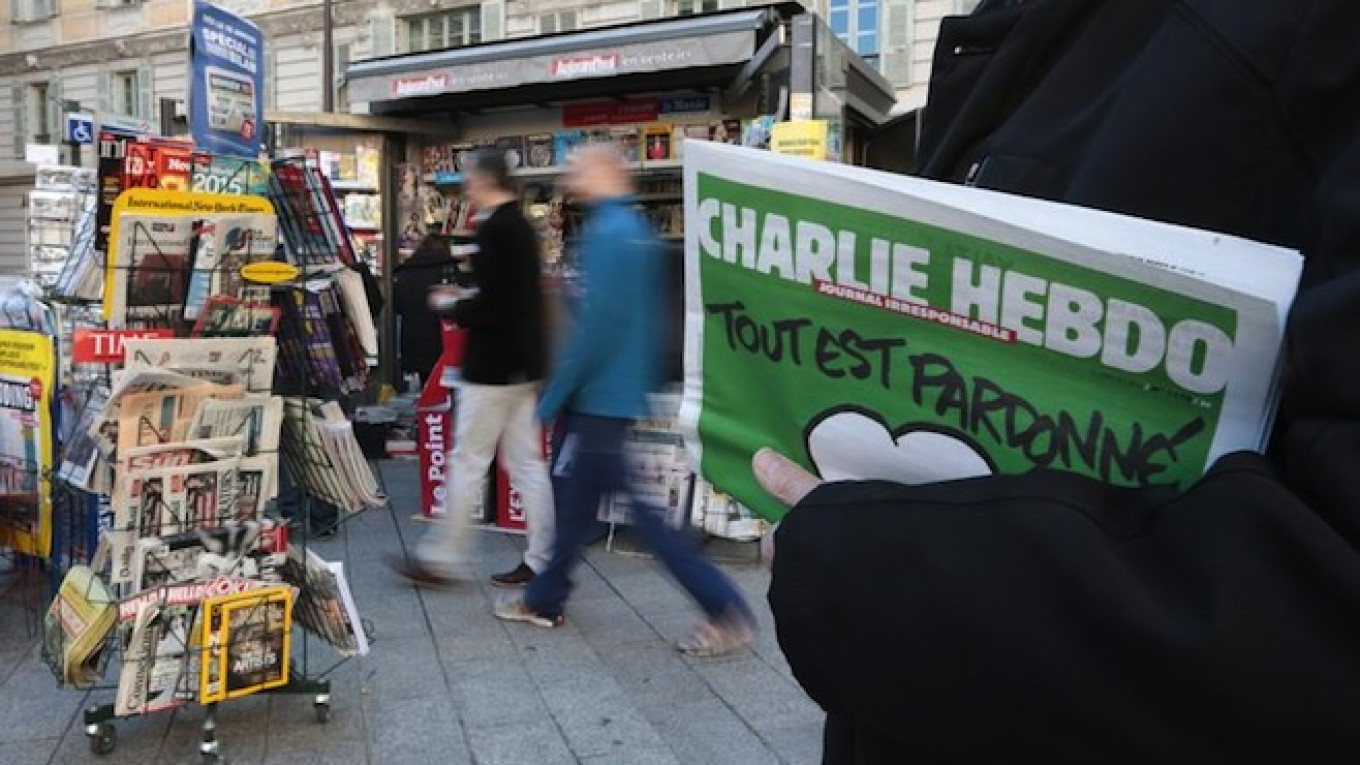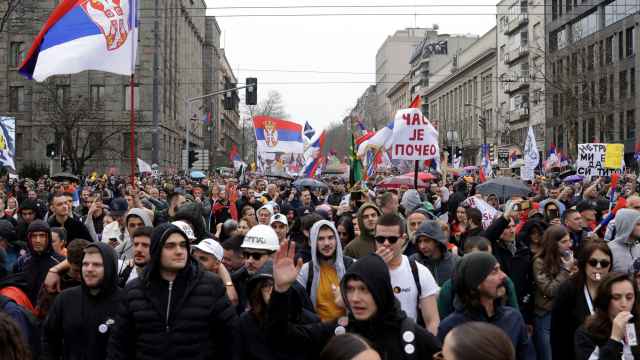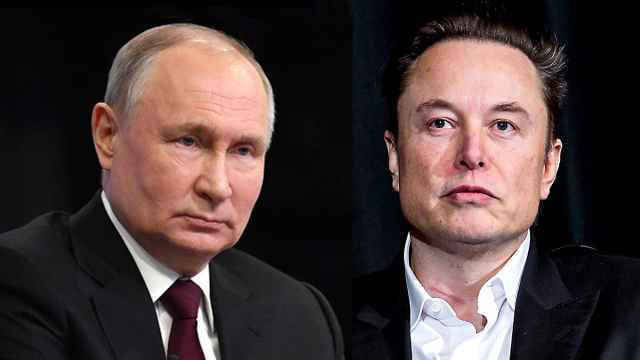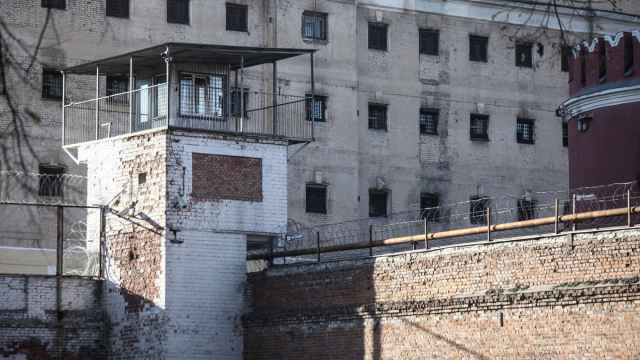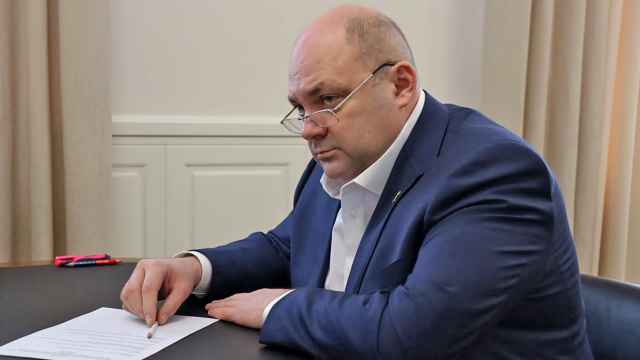Kremlin spokesman Dmitry Peskov has described two cartoons reportedly published in the satirical magazine Charlie Hebdo as “blasphemous,” amid a wave of condemnation of the French publication and calls to label its content extremist.
“[The cartoons] have no relation to democracy, nor self-expression, nor anything else — this is blasphemy,” Peskov said Friday, according to the TASS news agency.
In an interview with the Russian-language branch of French radio station Rfi on Friday, Charlie Hebdo editor Gerard Briar seemed unfazed.
“We are a secular, democratic and atheist newspaper. The term blasphemy has no meaning for us,” he was cited as saying.
“The Kremlin is using this to detract attention from other problems,” he added.
Less than a week after a Russian Airbus A321 broke up mid-air over Egypt's Sinai peninsula — killing all 224 people on board — the explicit cartoons, which Charlie Hebdo reportedly published in its latest edition and quickly did the rounds on social media, have struck Russians hard.
In one cartoon, an Islamic State militant is shown covering his head from a rain of wreckage pieces and a human body, under the caption: “Islamic State: Russia's air force intensifies bombing.”
Russia on Sept. 30 started a military air offensive in Syria in the name of targeting international terrorism there.
Another cartoon shows a human skull with the smoldering wreckage of a plane and scattered human organs in the background, alongside the phrases: “The dangers of Russian lowcosters,” and “Should have flown with Air Cocaine,”— referencing a much-publicized drug trafficking scandal in France involving a jet filled with hundreds of kilograms of cocaine.
State Duma speaker Ivan Melnikov described the cartoons as “dirty mockery” and the product of “outrageous cynicism,” the Interfax news agency reported Friday.
Head of the Rodina party and Duma deputy Alexei Zhuravlyov in a post on Facebook said the caricatures were a “Russophobic act” that “directly incites terrorism and murder,” proposing to ban the publication as extremist material.
The politician also called upon the French government to close down the publication.
The cartoons were also denounced by the head of the Russian Union of Journalists, Vselovod Bogdanov.
“What our French colleagues have done, those caricatures — it is offensive,” he was cited as saying by Vesti.ru.
Russian politicians swiftly offered their condolences when Charlie Hebdo's Paris office was targeted in January by Islamist gunmen, though some conservative forces in Russia denounced the publication for its insensitive views and questioned the limits of the right to freedom of expression.
Contact the author at e.hartog@imedia.ru
A Message from The Moscow Times:
Dear readers,
We are facing unprecedented challenges. Russia's Prosecutor General's Office has designated The Moscow Times as an "undesirable" organization, criminalizing our work and putting our staff at risk of prosecution. This follows our earlier unjust labeling as a "foreign agent."
These actions are direct attempts to silence independent journalism in Russia. The authorities claim our work "discredits the decisions of the Russian leadership." We see things differently: we strive to provide accurate, unbiased reporting on Russia.
We, the journalists of The Moscow Times, refuse to be silenced. But to continue our work, we need your help.
Your support, no matter how small, makes a world of difference. If you can, please support us monthly starting from just $2. It's quick to set up, and every contribution makes a significant impact.
By supporting The Moscow Times, you're defending open, independent journalism in the face of repression. Thank you for standing with us.
Remind me later.


